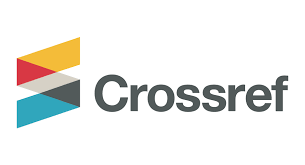Golongan Golongan Putih (Golput) Dalam Pemilihan Umum Perspektif Hukum Islam Dan UU No.7 Tahun 2017
 Abstract views: 1341
,
Abstract views: 1341
,
 PDF downloads: 524
PDF downloads: 524
Abstract
Setiap manusia memiliki hak untuk memilih, diantaranya yaitu memilih untuk memilih atau memilih untuk tidak memilih. Memilih tidak memilih atau biasa disebut dengan golongan putih (golput), biasanya dikarenakan kurangnya kesadaran tentang pendidikan politik, kurangnya kepercayaan dari masyarakat terhadap calon serta minimnya sosialisasi politik. Jenis penelitian yang digunakan yaitu jenis penelitis normatif (library research), dan menggunakan pendekatan yuridis normatif. Adapun sumber data dari penelitian ini terdiri dari sumber data primer yaitu al-Qur’an, Hadis dan Undang-undang. Rumusan masaah penelitian yaitu 1) bagaimana golongan putih dalam pemilu perspektif hukum Islam, 2) bagaimana golongan putih dalam pemilu perspektif Undang-undang Nomor 7 tahun 2017. Hasil penelitian menjelaskan bahwa 1) dalam memilih pemimpin yaitu suatu kewajiban bagi setiap manusia, dan perbuatan golput dalam Islam hukumnya ialah haram. Dalam agama Islam memilih pemimpin sebaiknya memenuhi syarat kepemimpinan yang ada pada dalam diri Nabi Muhammad saw, yaitu seperti jujur, terpercaya, bertakwa dan memiliki semangat yang tinggi dalam memperjuangkan kepentingan umat Islam 2) dalam perspektif Undang-undang Nomor 7 tahun 2017 atas golongan putih (golput) ialah suatu hak yang murni hak rakyat, dan rakyat memiliki kewenangan atas hak suara, bahwa rakyat boleh menggunakan hak suaranya dan boleh juga meninggalkan hak suaranya. Maka golongan putih (golput) menurut Undang-undang diperbolehkan.
Downloads
References
Republik Indonesia, Undang-Undang Nomor 39 Tahun 1999 Tentang Hak Asasi Manusia.
Khaeruman, Badri. (2004). Islam dan Demokrasi Mengungkap Fenomena Golput. Nimas Multima.
MPR RI, Empat Pilar Kehidupan Berbangsa dan Bernegara. Jakarta: Sekretariat Jenderal MPR RI, 2012.
Isa, Legawan. (2013). Buktikan !!! Anda Pengikut Sunnah Rasulullah saw. Abzat.
Shihab, M. Quraish. (2002). Tafsir a-Misbah Pesan, Kesan dan Keserasian al-Quran. Lentera Hati.
Tim Redaksi. Undang-undang Nomor 7 tahun 2017 tentang Pemilihan Umum. Yogyakarta: Laksana, 2017.
Publishing your paper with As-Shahifah : Journal of Constitutional Law and Governance means that the author or authors retain the copyright in the paper. As-Shahifah granted an exclusive non commercial reuse license by the author(s), but the author(s) are able to put the paper onto a website, distribute it to colleagues, give it to students, use it in your thesis etc, so long as the use is not directed at commercial advantage or toward private monetary gain. The author(s) can reuse the figures and tables and other information contained in their paper published by As-Shahifah in future papers or work without having to ask anyone for permission, provided that the figures, tables or other information that is included in the new paper or work properly references the published paper as the source of the figures, tables or other information, and the new paper or work is not direct at private monetary gain or commercial advantage.
As-Shahifah journal provides immediate open access to its content on the principle that making research freely available to the public supports a greater global exchange of knowledge. This journal is licensed under a Creative Commons Attribution-ShareAlike 4.0.This license lets others remix, tweak, and build upon your work non-commercially, and although their new works must also acknowledge & be non-commercial, they don’t have to license their derivative works on the same terms.
As-Shahifah journal Open Access articles are distributed under this Creative Commons Attribution-ShareAlike 4.0 International License (CC BY-SA). Articles can be read and shared for noncommercial purposes under the following conditions:
- BY: Attribution must be given to the original source (Attribution)
- SA: If you remix, transform, or build upon the material, you must distribute your contributions under the same license as the original.










